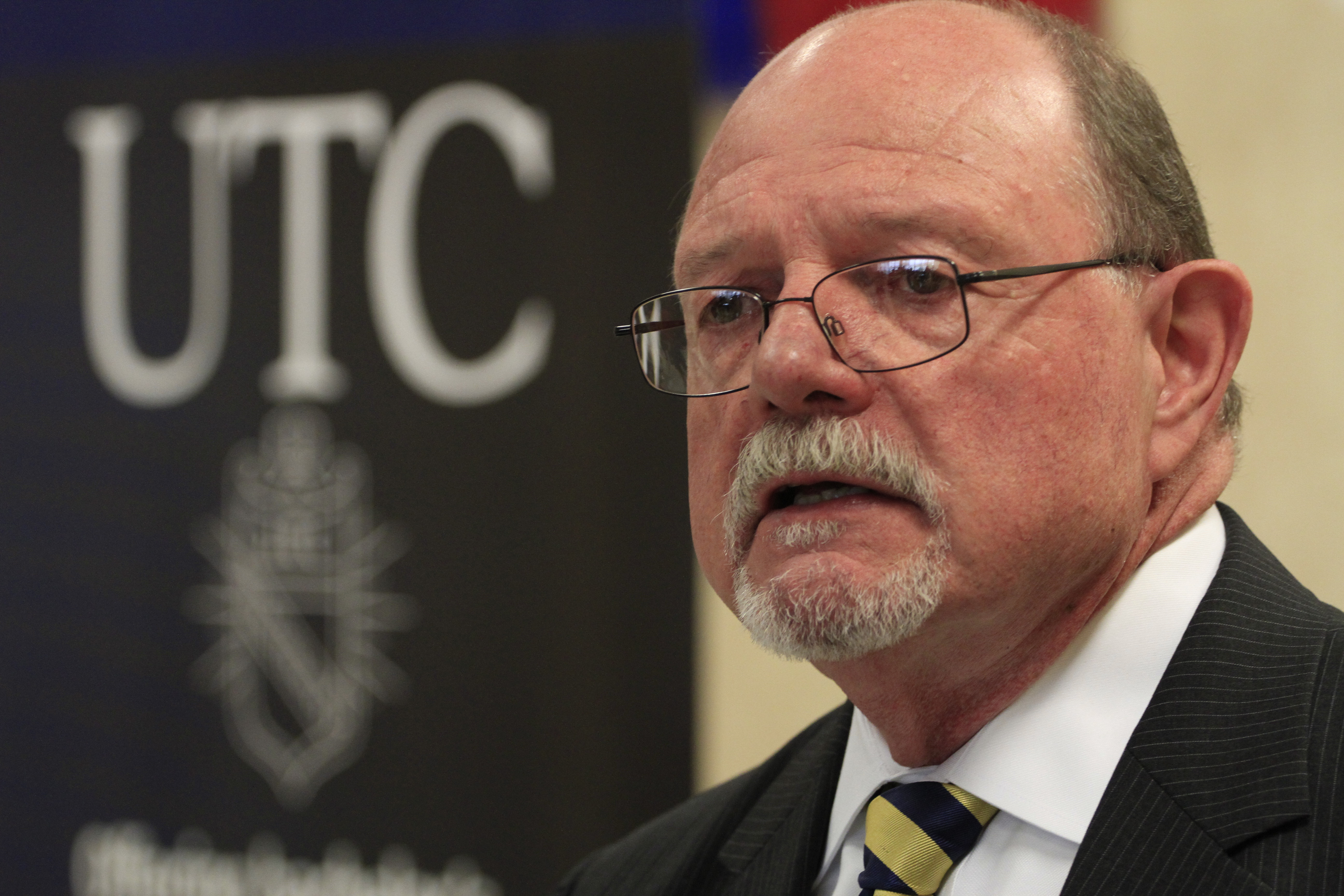Regardless of what happens at Finley Stadium on Saturday when the University of Tennessee at Chattanooga football team hosts No. 18 Appalachian State, it will be a good day for the UTC athletic department.
That's because its two-year stretch on probation for what the NCAA deemed as "major" violations relating to recruiting communication -- 137 impermissible text messages and 74 phone calls, primarily involving football and men's basketball -- will be complete.
The NCAA Committee on Infractions also said UTC "failed to monitor" its programs' communication with recruits properly. The 22-page NCAA report had some harsh words for UTC, but by the time it came out UTC had imposed its own penalties after self-reporting most of the infractions.
Those penalties included the loss of a men's basketball scholarship for the 2010-11 academic year, temporary recruiting restrictions for men's basketball and recruiting suspension for a former assistant football coach, Jason McManus, who no longer was with the program when the infractions were announced.
Chancellor Roger Brown, who will retire on Thursday, said it will be good to remove the "cloud" of probation that has hovered over the athletic department since the probation began on Sept. 23, 2010. The "cloud" wasn't as bad as he anticipated, however.
"It wasn't as oppressive to me day to day, and I hope it wasn't for the coaches," he said.
"It didn't feel like you were shackled."
Other than being on probation and sending compliance reports to the NCAA indicating the progress made each year in monitoring coaches' recruiting communication, it has been a rather painless two years. All the penalties imposed by UTC were completed before the infraction announcement.
Nobody wants to go through an NCAA investigation or probation, but interim athletic director Laura Herron said some good has come from it.
"I think it's always good when you do that internal analysis, like the investigation, to see where you are weak," she said. "And it was with our monitoring. The NCAA doesn't give you clear guidelines on how you do it, so learning where our weak links were and investing in the software to help us track that -- we know what we're doing now."
Instead of keeping track of recruiting calls on paper as it had done for years, UTC invested in August 2010 in a software program that monitors all calls made to recruits and provides a warning when an impermissible call is being made.
As for the text messages that got men's basketball coach John Shulman and some of his assistants in trouble, the NCAA board of directors decided last October to lift its ban on text messaging recruits who have completed their sophomore year in high school.
Contact John Frierson at jfrierson@timesfreepress.com or 423-757-6268. Follow him on Twitter at twitter.com/mocsbeatCTFP.

